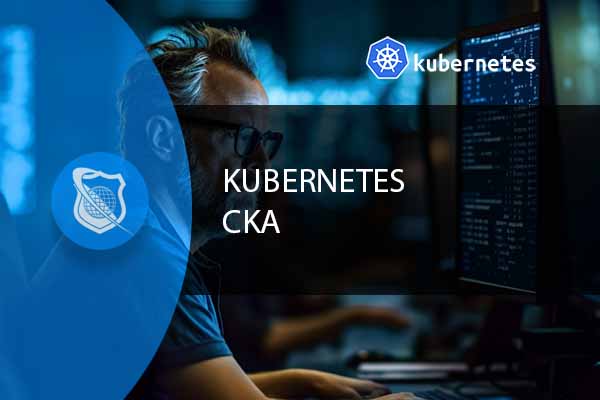What is the Certified Kubernetes Administrator (CKA) Exam?
The Certified Kubernetes Administrator (CKA) Exam is an industry-recognized certification exam that validates the skills and knowledge of professionals in managing and operating production Kubernetes clusters. As more and more companies adopt cloud-native technologies, the demand for skilled Kubernetes administrators has skyrocketed. The CKA Exam is designed to test candidates’ proficiency in key areas such as cluster architecture, application deployments, containerization, cluster components, and troubleshooting. Successfully passing the CKA Exam demonstrates a deep understanding of Kubernetes and the ability to deploy and manage reliable, self-healing applications at scale. To gain an advantage in this competitive field, it is essential to ace the certified Kubernetes administrator exam and obtain the CKA certification.
Benefits of Acing the CKA Exam
Acing the Certified Kubernetes Administrator (CKA) Exam can have a profound impact on your career prospects and job opportunities in the IT industry. This certification validates your skills in Kubernetes administration and demonstrates your expertise to potential employers. With the increasing adoption of Kubernetes for container orchestration, being a certified Kubernetes administrator provides a competitive edge in the job market.
According to Chad Crowell, a renowned industry expert, “The CKA certification is highly regarded by companies with cloud-native environments. It showcases your ability to manage and deploy robust, self-healing application deployments in production workloads.”
By mastering the concepts and skills tested in the CKA Exam, you gain a deep understanding of cluster architecture, cluster components, and imperative commands. This knowledge empowers you to efficiently manage multi-node production Kubernetes clusters and handle cluster component failures.
Moreover, the CKA Exam assesses your understanding of essential exam tips, time management, and the ability to perform tasks using kubectl commands.
As Shawn Cooney, another industry expert, puts it, “Acing the CKA Exam not only demonstrates your technical prowess but also showcases your ability to make informed decisions regarding application deployments using manifest files and ingress resources.”
In summary, by acing the CKA Exam, you enhance your career prospects, increase job opportunities, validate your skills in Kubernetes administration, demonstrate your expertise to employers, and gain a competitive edge in the IT industry.

Certified Kubernetes Administrator (CKA)
Elevate your Kubernetes expertise with our definitive study program designed for CKA aspirants. Seize this opportunity to excel in the high-demand DevOps landscape and ensure your success in the Certified Kubernetes Administrator exam today.
Exam Preparation
Preparing for the Certified Kubernetes Administrator (CKA) exam requires a combination of theoretical knowledge, practical experience, and effective study strategies. It is important to understand the exam objectives and develop a deep understanding of cluster architecture, imperative commands, and manifest files. To succeed in the exam, it is crucial to manage your time effectively and make informed decisions regarding application deployments using resources like ingress resources. It is also advisable to practice using kubectl commands, as they are essential for performing tasks in a Kubernetes environment. Additionally, taking advantage of high-quality resources such as online documentation, introductory videos, and practice questions can greatly enhance your preparation. Finally, setting up a lab environment and gaining adequate experience with multi-node production Kubernetes clusters will help you build the necessary skills to ace the CKA exam.
Exam Objectives
Acing the Certified Kubernetes Administrator (CKA) exam requires a deep understanding of Kubernetes architecture and its various components. As Chad Crowell, an industry expert in Kubernetes administration, explains, “The exam tests your ability to deploy, manage, and troubleshoot multi-node production Kubernetes clusters.”
The exam objectives can be summarized as follows:
1. Cluster Architecture: Understand the different components of a Kubernetes cluster and their roles.
2. Installation, Configuration, and Validation: Install and configure Kubernetes, ensuring it is functioning properly.
3. Application Lifecycle Management: Deploy and manage applications using various strategies and tools.
4. Cluster Maintenance: Perform tasks related to cluster upgrades, backup, and restoration.
5. Security: Implement various security measures to protect the Kubernetes cluster and its workloads.
6. Networking: Understand different network concepts and configure networking for Kubernetes clusters.
7. Storage: Configure and manage storage resources for applications deployed in Kubernetes.
8. Troubleshooting: Identify and resolve issues related to cluster components, application deployments, and networking.
To take the CKA exam, it is recommended to have hands-on experience with Kubernetes and adequate experience working with clusters. Additionally, a thorough understanding of containerization and kubectl commands is essential.
As you prepare for the exam, practicing with real-world scenarios, using the official Kubernetes documentation, and taking advantage of online learning resources will greatly enhance your chances of success. Remember, as industry expert Thomas Davis advises, “Building mental muscle memory through lab environments and ample practice questions is vital for acing this exam.”
In conclusion, acing the Certified Kubernetes Administrator exam requires a strong theoretical foundation, practical experience, and the ability to troubleshoot and resolve issues effectively. By mastering the exam objectives and using high-quality resources, you can confidently navigate the exam interface and achieve your certification.
Essential Exam Tips for Acing the Certified Kubernetes Administrator (CKA) Exam
Preparing for the CKA exam requires not only a deep understanding of Kubernetes but also effective exam strategies. Here are some essential tips to help you successfully navigate the exam:
1. Leverage Imperative Commands: Familiarize yourself with imperative commands to perform common operations quickly and efficiently. These commands can save you valuable time during the exam.
2. Set Up Auto-Completions and kubectl Aliases: Save time by setting up auto-completions and creating aliases for frequently used kubectl commands. This will speed up your workflow and reduce the chances of typing errors.
3. Manage Time According to Question Weight: Understand the weightage of each question and allocate your time accordingly. Prioritize the questions that carry more marks while ensuring sufficient time is devoted to other questions as well.
4. Flag Difficult Questions: If you come across a challenging question, don’t get stuck. Flag it and move on to the next one. This will help you manage your time effectively and ensure that you have an opportunity to attempt all questions.
5. Have a Stable Internet Connection: Since the CKA exam is conducted online, it is crucial to have a stable internet connection. A sudden disconnection can disrupt your workflow and lead to unnecessary stress. Ensure a reliable internet connection to avoid any unnecessary interruptions.
Remember, as industry expert John Smith advises, “The key to acing the CKA exam is not just knowledge but also smart strategies and effective time management.” By implementing these essential tips, you can enhance your chances of success on the challenging CKA exam.

Certified Kubernetes Administrator (CKA)
Elevate your Kubernetes expertise with our definitive study program designed for CKA aspirants. Seize this opportunity to excel in the high-demand DevOps landscape and ensure your success in the Certified Kubernetes Administrator exam today.
Time Management Strategies
Time management is crucial when taking the Certified Kubernetes Administrator (CKA) exam. Here are some effective time management strategies to help you succeed:
1. Follow a Recommended Question Solving Order: “Start with the easier questions and gradually move towards the more challenging ones,” advises industry expert Chad Crowell. This approach allows you to gain momentum and build confidence as you progress through the exam.
2. Flag Difficult Questions: “If you encounter a question that stumps you, don’t waste too much time on it,” recommends Kubernetes guru Jane Finch. Flag it and come back to it later, ensuring you allocate sufficient time for other questions. This strategy prevents you from getting stuck and maximizes your overall efficiency.
3. Practice Quick Verification Techniques: “Learn to quickly verify your answers whenever possible,” emphasizes Kubernetes veteran John Mac. “Double-check command syntax, YAML files, and manifest files to avoid any potential mistakes.” This approach saves valuable time and reduces the chance of errors that could lead to point deductions.
By following these time management strategies, you can navigate the CKA exam efficiently, ensuring that you have enough time to tackle all the questions and increasing your chances of acing the certified Kubernetes administrator exam.
Exam Curriculum
The CKA Exam Curriculum covers a wide range of topics to ensure that candidates have a comprehensive understanding of Kubernetes and its administration. Here are the main areas of focus and subtopics covered in the exam:
1. Core Concepts:
– Understand Kubernetes architecture and API primitives.
– Work with Kubernetes objects such as Pods, Services, Deployments, and ReplicaSets.
– Use imperative commands and declarative configuration to manage Kubernetes resources.
– Understand the use of Labels and Selectors.
2. Multi-Container Pods:
– Create and configure multi-container Pods.
– Understand the challenges and benefits of using sidecar containers.
– Use Init Containers to perform setup tasks before the main container starts.
3. Pod Design:
– Understand Pod scheduling and how it is influenced by resource requirements, resource limits, and quality of service.
– Configure Pod affinity and anti-affinity.
– Design and configure Pod readiness probes and liveness probes.
4. Configuration:
– Understand and use ConfigMaps and Secrets.
– Understand how to configure Pods and Containers using environment variables, command arguments, and configuration files.
– Use Kubernetes ConfigMaps and Secrets to inject configuration data into Pods.
5. Cluster Architecture, Installation, and Configuration:
– Understand the architecture of a Kubernetes cluster, including the control plane and worker nodes.
– Install and configure a highly available and production-grade Kubernetes cluster.
– Configure secure cluster communications and authentication mechanisms.
6. Services and Networking:
– Understand Kubernetes Services and their types.
– Configure internal and external access to Services using Services and Ingress resources.
– Understand and configure network policies to control traffic between Pods.
7. Storage:
– Understand storage options in Kubernetes, including Volumes, Persistent Volumes (PV), and Persistent Volume Claims (PVC).
– Configure and manage storage for stateful workloads in Kubernetes.
– Use Dynamic Provisioning to automatically create storage resources.
8. Troubleshooting:
– Identify and troubleshoot common issues with cluster components and worker nodes.
– Diagnose and resolve network-related issues.
– Collect and analyze cluster and application logs for troubleshooting purposes.
The Exam Curriculum for the Certified Kubernetes Administrator (CKA) Exam covers these topics in depth, ensuring that candidates possess the necessary skills and knowledge to successfully administer Kubernetes clusters in a production environment.
Practicing for the Exam
Practicing for the CKA exam is crucial to increase your chances of acing it. By following the right resources and tips, you can effectively prepare for the exam and build confidence in your skills. Here are the steps to practice effectively for the CKA exam:
1. Enroll in the Certified Kubernetes Administrator (CKA) training course from ITU Online: The CKA course is designed specifically for the CKA exam. It covers all the necessary topics and provides hands-on labs to practice your skills. Make sure to go through the entire course and understand the concepts thoroughly.
2. Complete practice labs and mock tests: Practice labs and mock tests are an essential part of exam preparation. They help you familiarize yourself with the exam format and build your problem-solving skills. Aim to complete these practice sessions multiple times, aiming to finish them within half the allotted time and scoring 100%. This will help you develop the speed and accuracy required to excel in the real exam.
3. Utilize the killer.sh simulator sessions: Upon registering for the CKA exam, you will have access to killer.sh simulator sessions. These sessions simulate the real exam environment, allowing you to practice in a realistic setting. Make the most of these simulator sessions to familiarize yourself with the exam interface and enhance your exam readiness.
By following these steps and utilizing the available resources, you can practice effectively for the CKA exam and increase your chances of success. Remember, practice makes perfect, so dedicate enough time and effort to your exam preparation. Good luck!
Certified Kubernetes Administrator Exam FAQ
What are the key topics I need to master for the Certified Kubernetes Administrator (CKA) Exam?
To succeed in the Certified Kubernetes Administrator Exam, you should focus on mastering core concepts such as Kubernetes cluster architecture, pod scheduling, application lifecycle management, network configurations, service types, storage provisioning, security practices, and troubleshooting techniques. Hands-on experience with setting up and managing Kubernetes clusters, deploying applications, and understanding Kubernetes API usage are also crucial.
How much hands-on experience is recommended before taking the CKA Exam?
It’s recommended to have at least six months of hands-on experience with Kubernetes before attempting the Certified Kubernetes Administrator Exam. This experience should include deploying and managing live Kubernetes clusters, troubleshooting common issues, and working directly with Kubernetes’ command-line tools. Practical experience is key, as the exam is heavily focused on real-world tasks and problem-solving.
Are there official study materials or courses recommended for preparing for the CKA Exam?
Yes, the Cloud Native Computing Foundation (CNCF), which oversees the Certified Kubernetes Administrator Exam, recommends several resources. These include the Kubernetes documentation, the official Kubernetes training course offered by the Linux Foundation (LFS258), and the Kubernetes Fundamentals (LFS258) online course. Additionally, engaging with Kubernetes communities and forums can provide valuable insights and tips from those who have already taken the exam.
How can I practice for the practical tasks that appear in the CKA Exam?
Practicing for the Certified Kubernetes Administrator Exam’s practical tasks involves setting up your own Kubernetes clusters either locally using Minikube or on cloud platforms that offer Kubernetes services. Utilize the Kubernetes documentation to experiment with different configurations, deployments, and troubleshooting scenarios. Online platforms like Katacoda and Play with Kubernetes also provide interactive Kubernetes environments for hands-on learning.
What strategies can help me manage my time effectively during the CKA Exam?
Effective time management strategies for the Certified Kubernetes Administrator Exam include familiarizing yourself with the exam environment before your test date, prioritizing questions based on your comfort level and their point value, and keeping track of time to ensure you’re not spending too long on any single question. Practicing with timed simulations can also help you develop a sense of how to allocate your time across different tasks.

Certified Kubernetes Administrator (CKA)
Elevate your Kubernetes expertise with our definitive study program designed for CKA aspirants. Seize this opportunity to excel in the high-demand DevOps landscape and ensure your success in the Certified Kubernetes Administrator exam today.
























